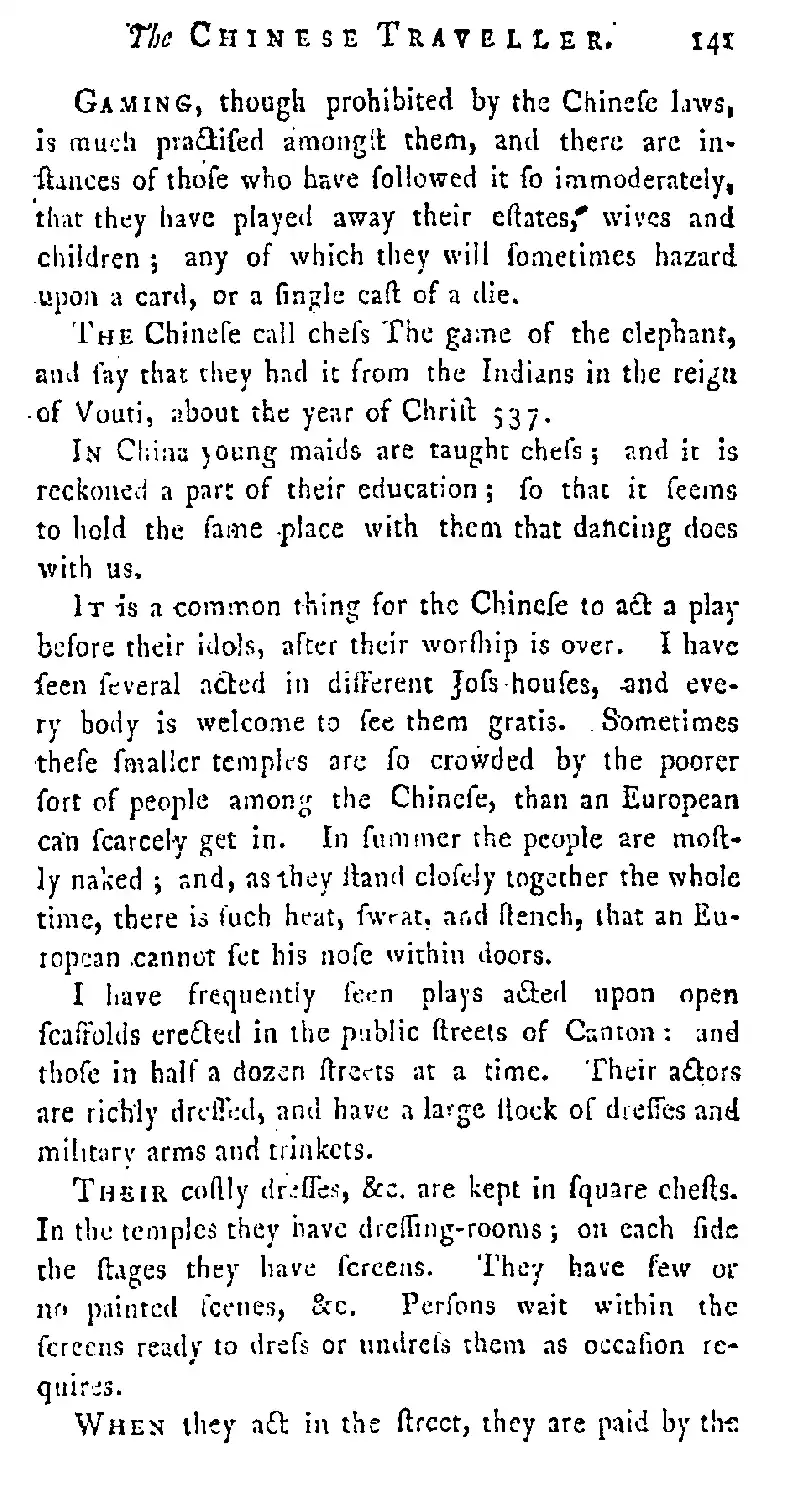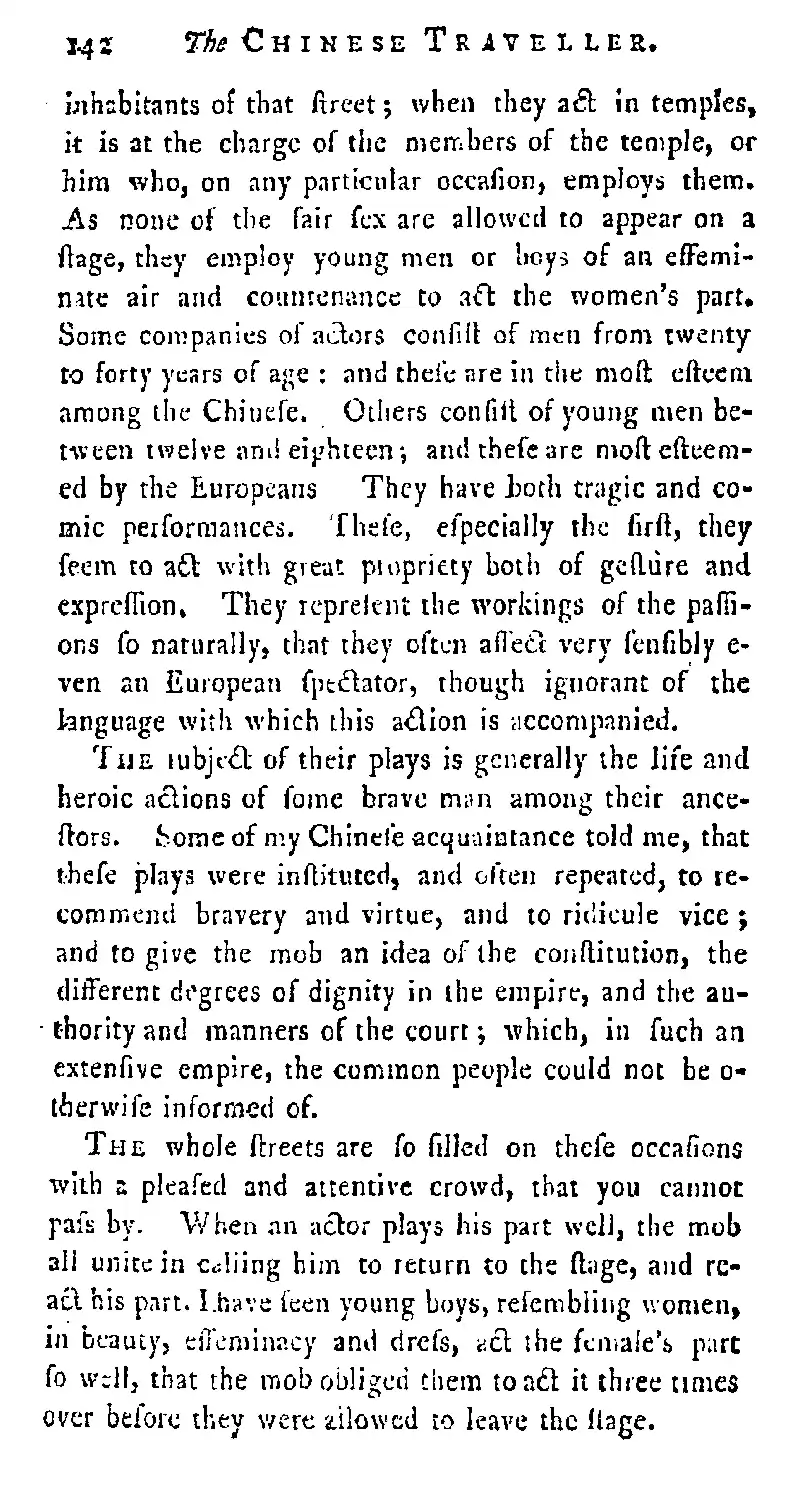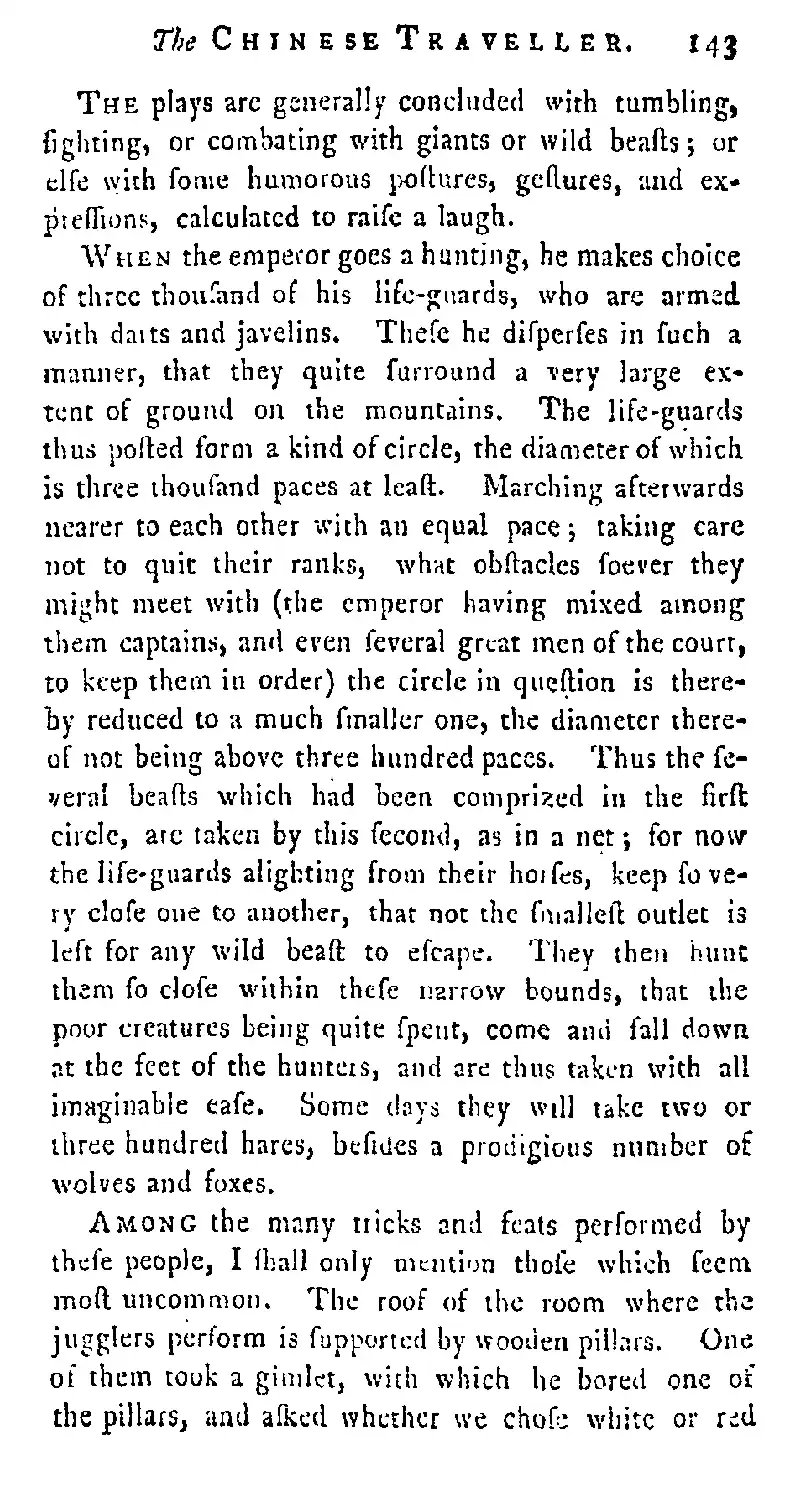The Chinese Traveller
- Info
- Pages
- Transcript
- Related
IT is a common thing for the Chinese to act a play before their idols,
after their worship is over. I have seen several acted in different Joss
houses, and every body is welcome to see them gratis. Sometimes these
smaller temples are so crowded by the poorer sort of people among the
Chinese, than an European can scarcely get in. In summer the people are
mostly naked; and, as they stand closely together the whole time, there
is such heat, sweat and stench, that an European cannot set his nose
within doors.
I have frequently seen plays upon open scaffolds erected in the public
streets of Canton: and those in half a dozen streets at a time. Their
actors are richly dressed, and have a large stock of dresses and
military arms and trinkets.
THEIR costly dresses, &c. are kept in square chests. In the temples they
have dressing-rooms; on each side the stages they have screens. They
have few or no painted scenes, &c. Persons wait within the screens ready
to dress or undress them as occasion requires.
WHEN they act in the street, they are paid by the inhabitants of that
street; when they act in temples, it is at the charge of the members of
the temple, or him who, on any particular occasion, employs them. As
none of the fair sex are allowed to appear on a stage, they employ young
men or boys of an effeminate air and countenance to act the women’s
part. Some companies of actors consist of men from twenty to forty years
of age: and these are in the most esteem among the Chinese. Others
consist of young men between twelve and eighteen; and these are most
esteemed by the Europeans. They have both tragic and comic performances.
These, especially the first, they seem to act with great propriety both
of gesture and expression. They represent the workings of the passions
so naturally, that they often affect very sensibly even an European
spectator, though ignorant of the language with which this action is
accompanied.
THE subject of their plays is generally the life and heroic actions of
some brave man among their ancestors. Some of my Chinese acquaintance
told me, that these plays were instituted, and often repeated, to
recommend bravery and virtue, and to ridicule vice ; and to give the mob
an idea of the constitution, the different degrees of dignity in the
empire, and the authority and manners of the court; which, in such an
extensive empire, the common people could not be otherwise informed of.
THE whole streets are so filled on these occasions with a pleased and
attentive crowd, that you cannot pass by. When an actor plays his part
well, the mob all unite in calling him to return to the stage, and react
his part. I have seen young buys, resembling women, in beauty,
effeminacy and dress, act the female’s part so well, that the mob
obliged them to act it three times over before they were allowed to
leave the stage.
THE plays are generally concluded with tumbling, lighting, or combating
with giants or wild beasts; or else with some humorous postures,
gestures, expressions, calculated to raise a laugh.


